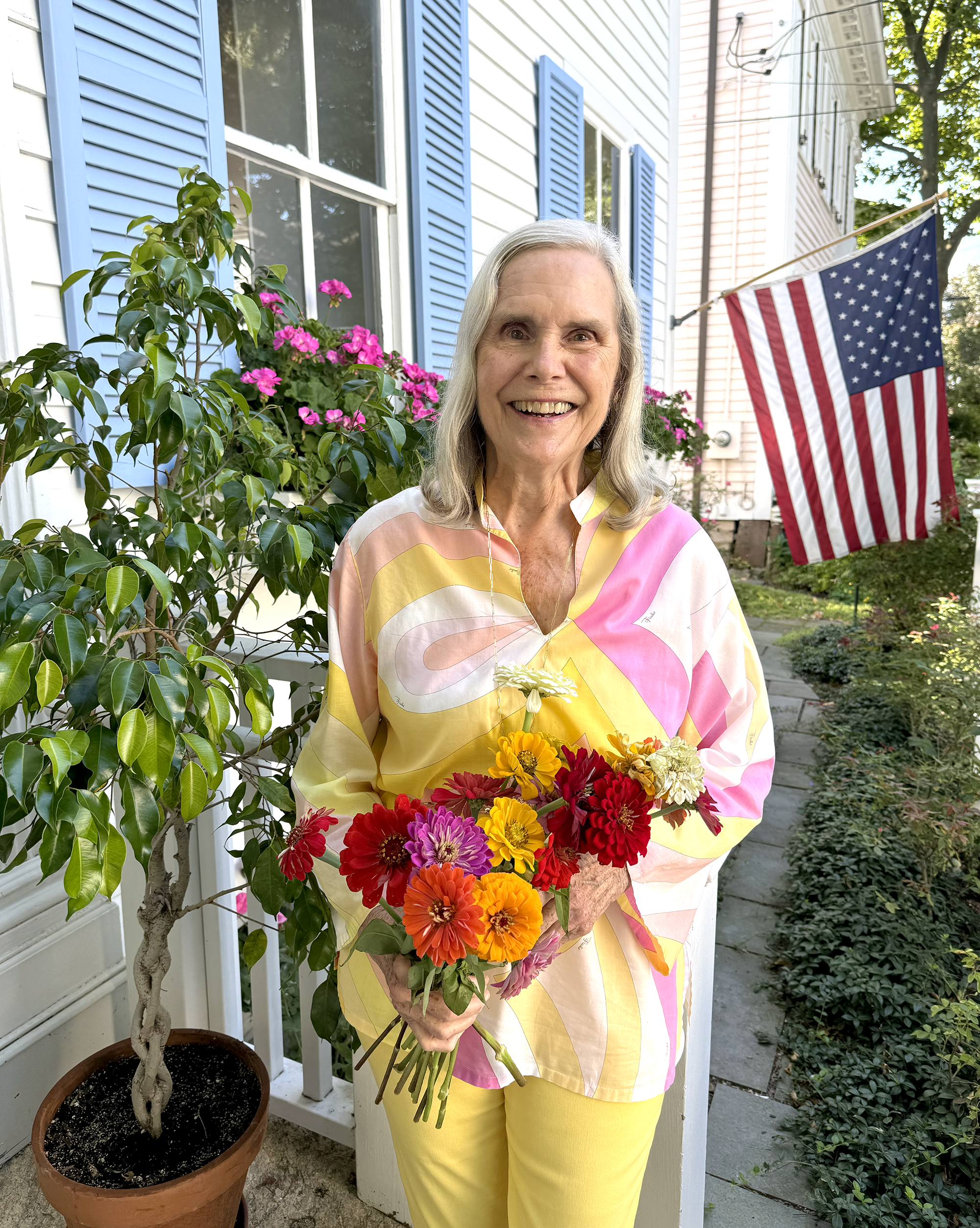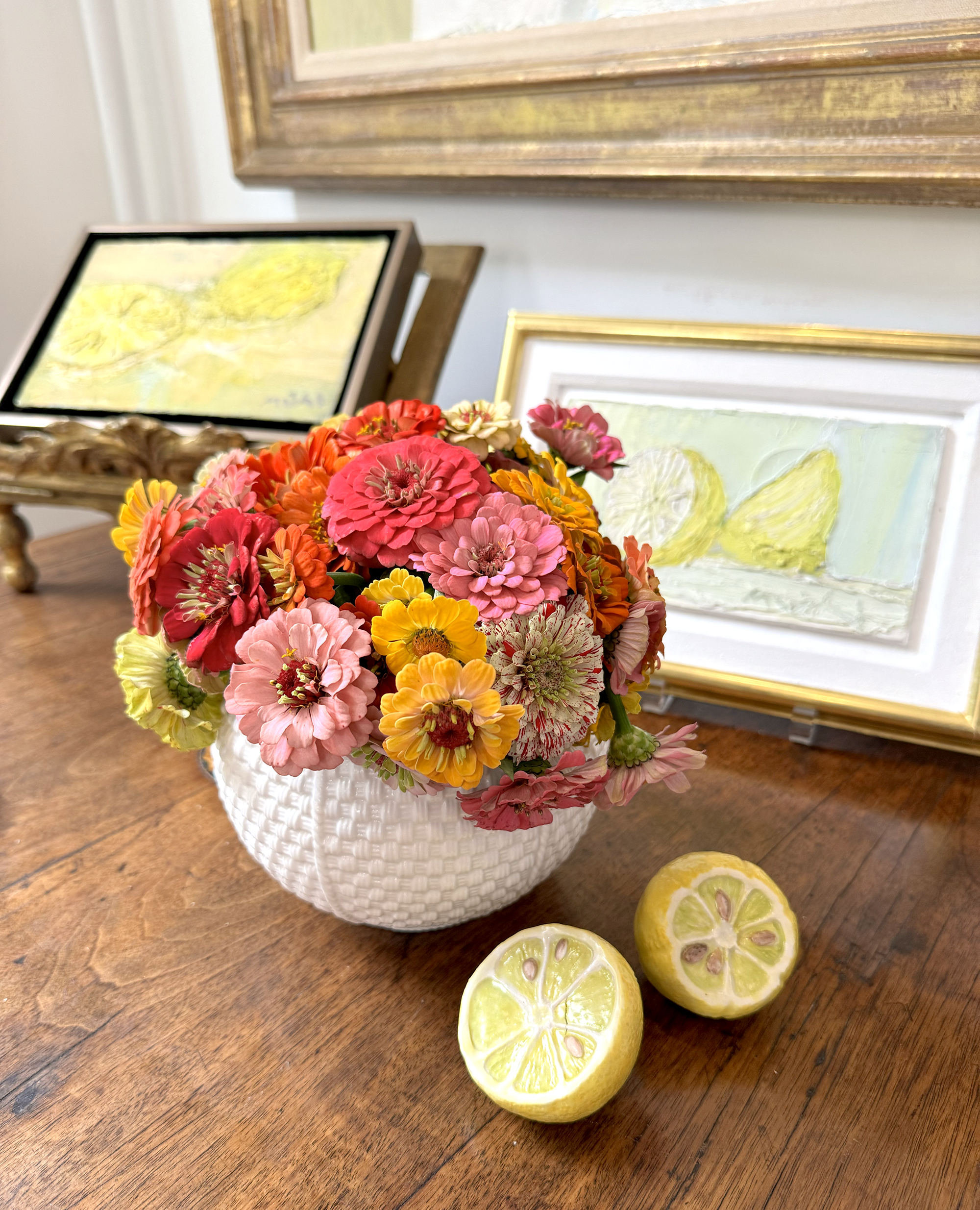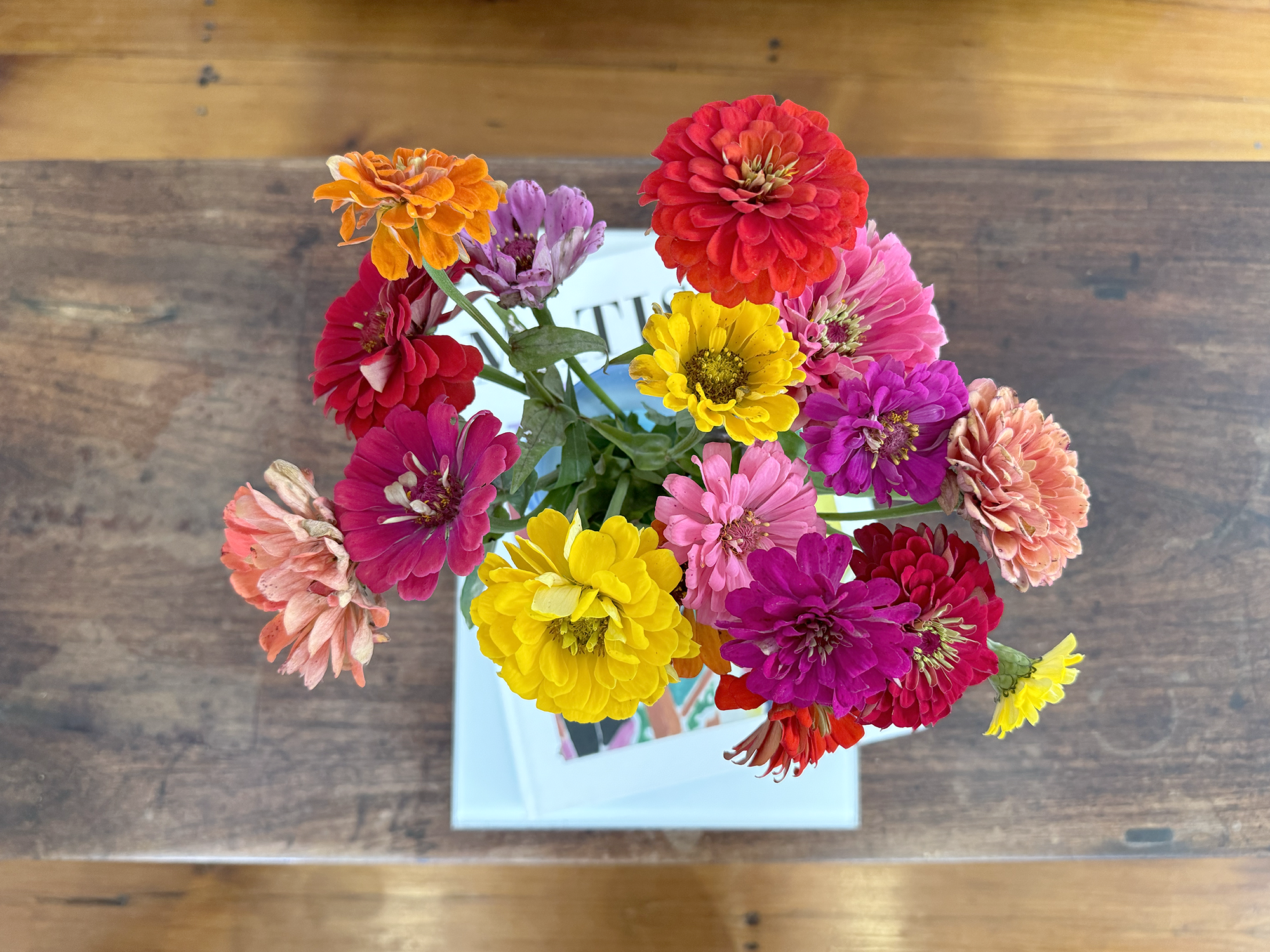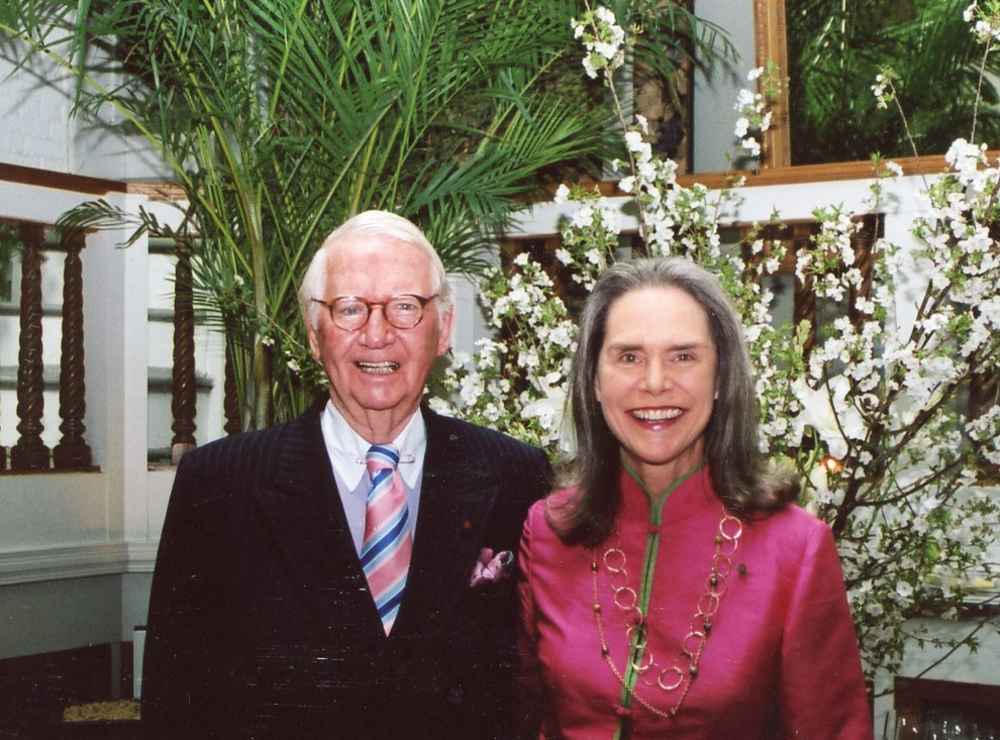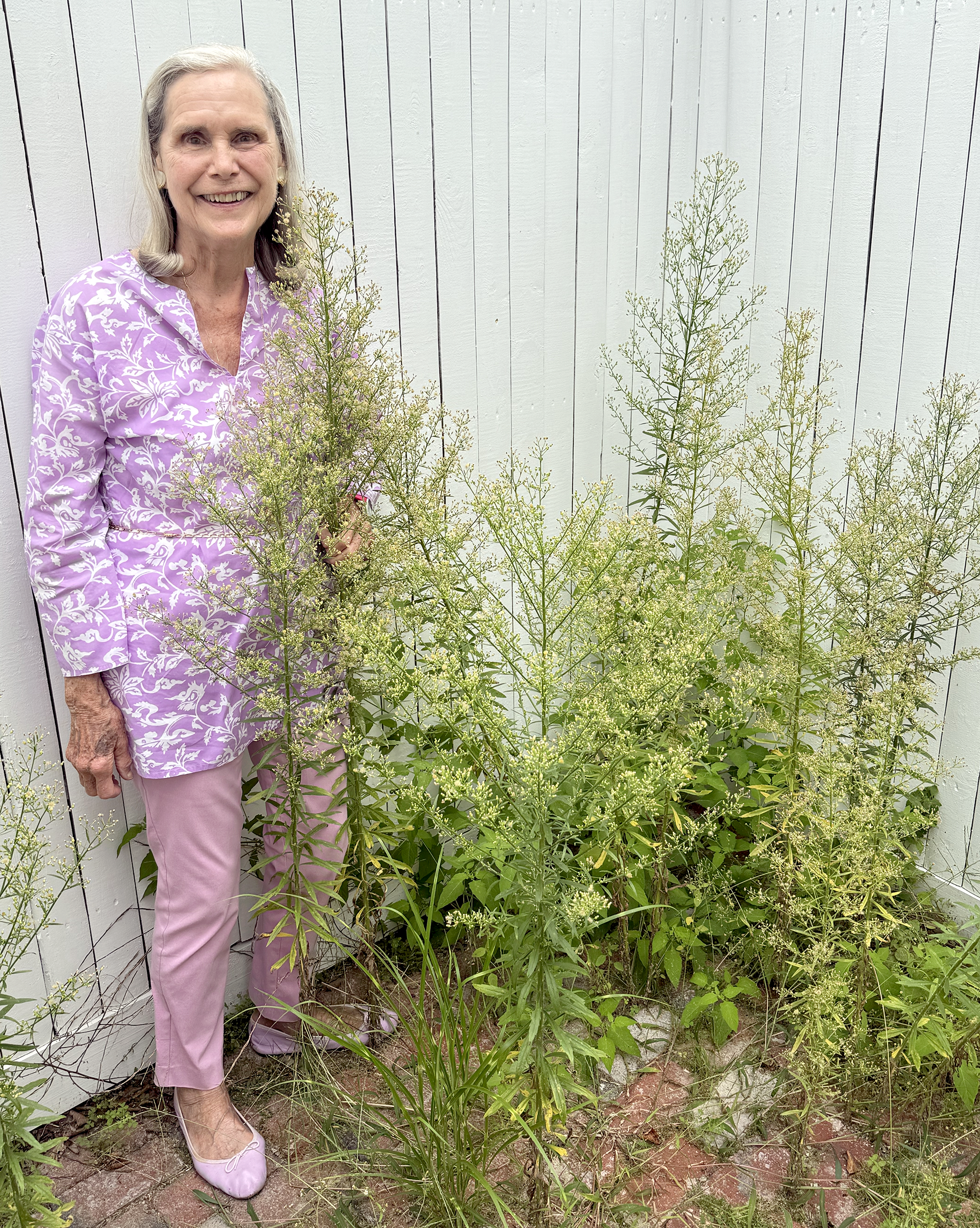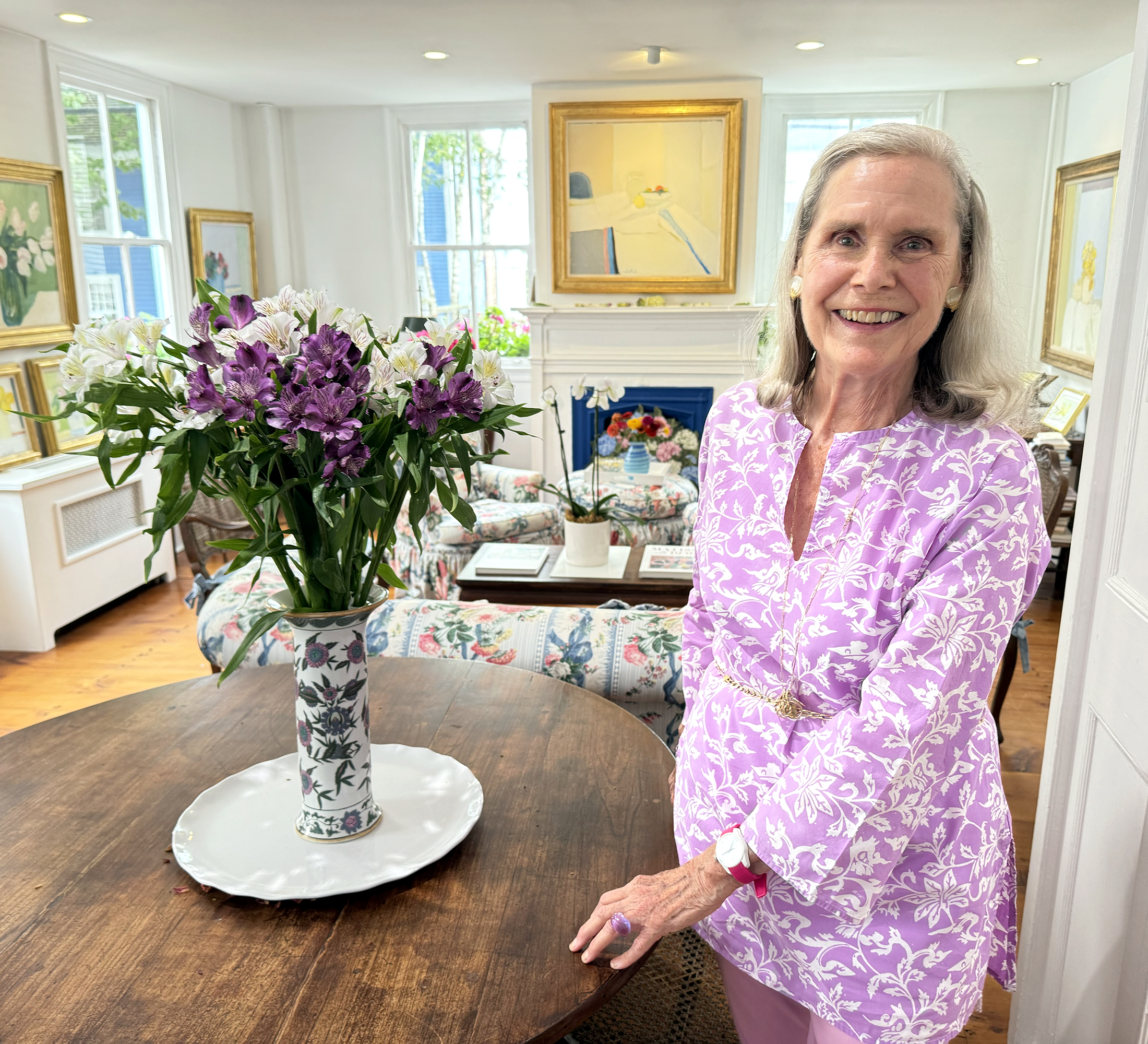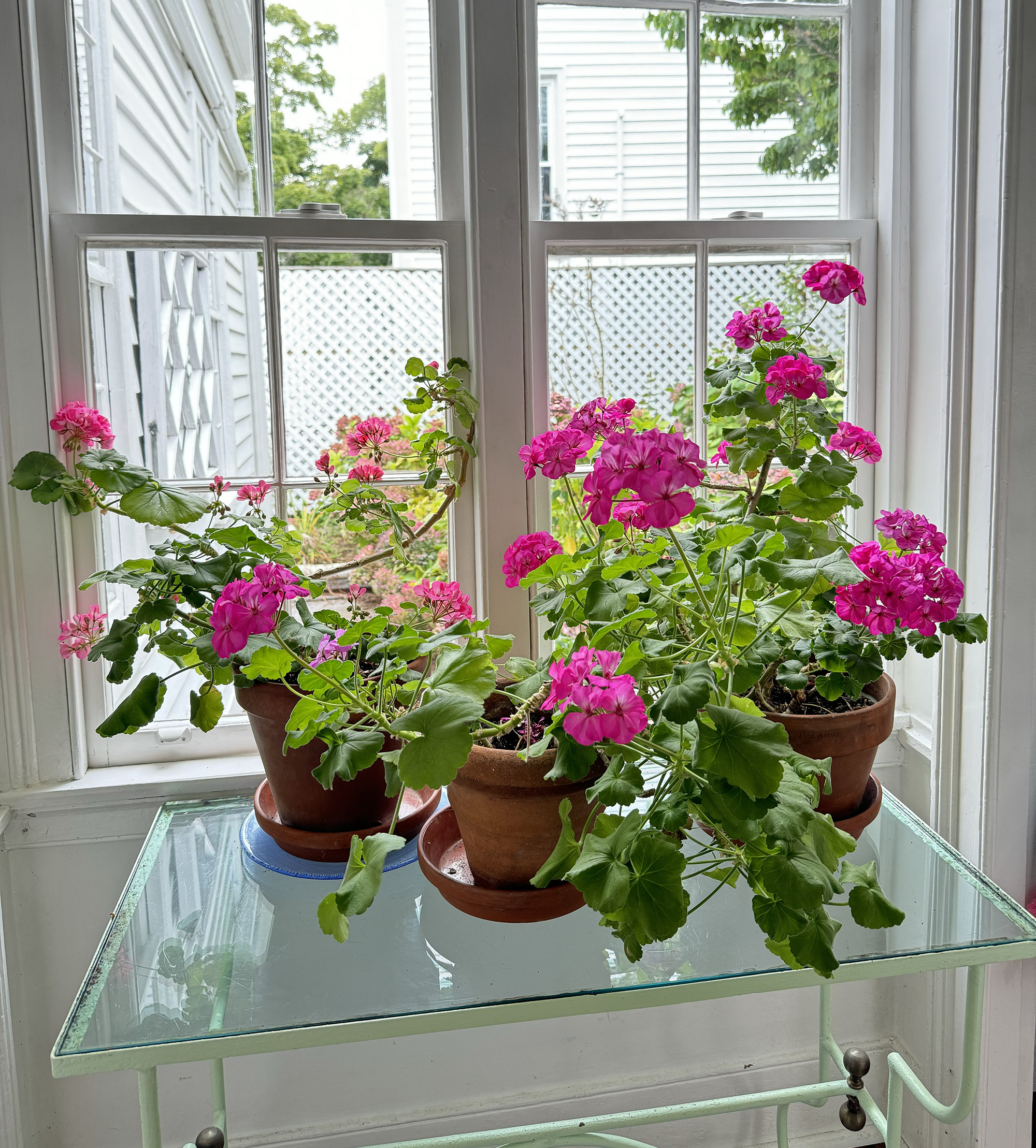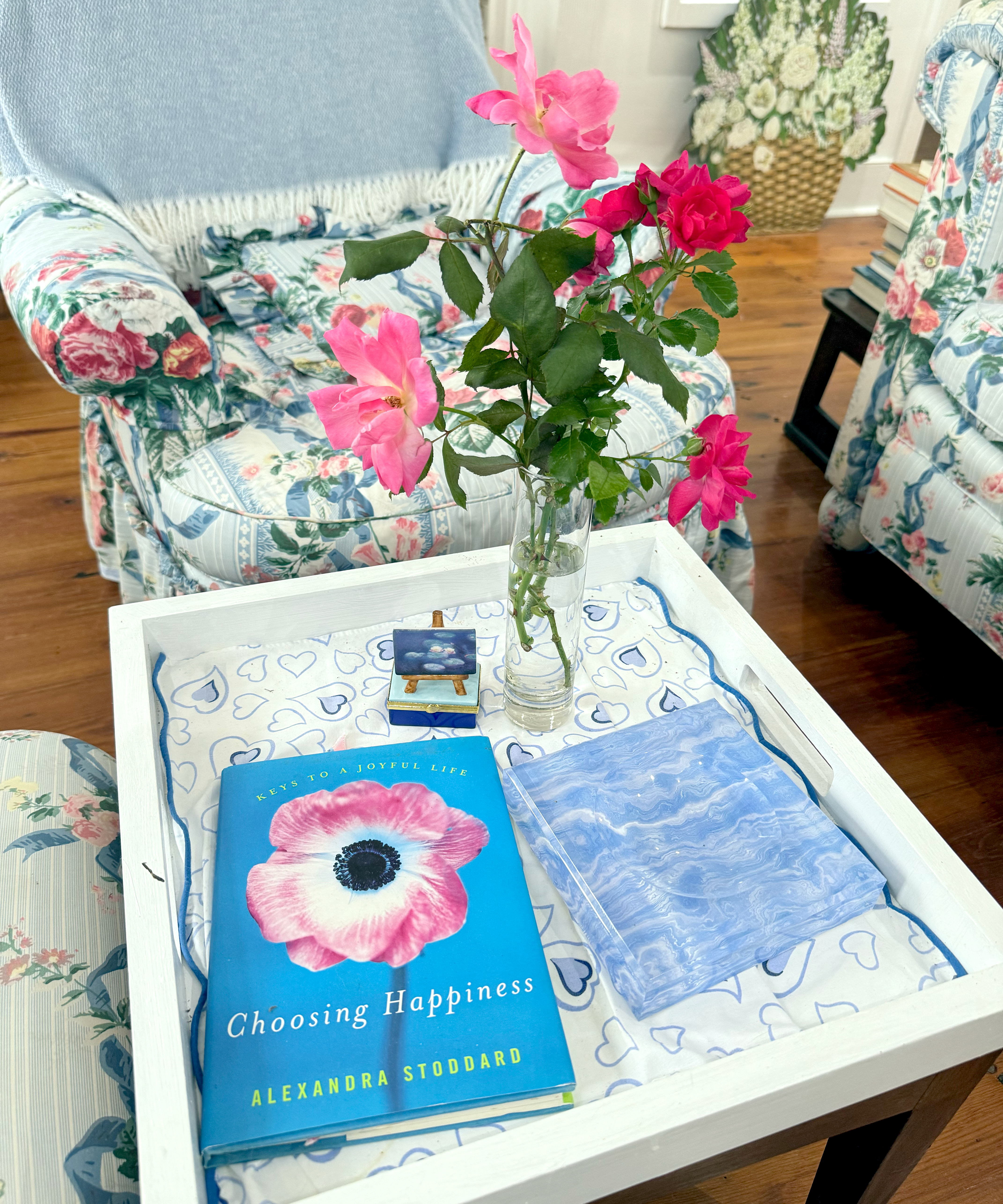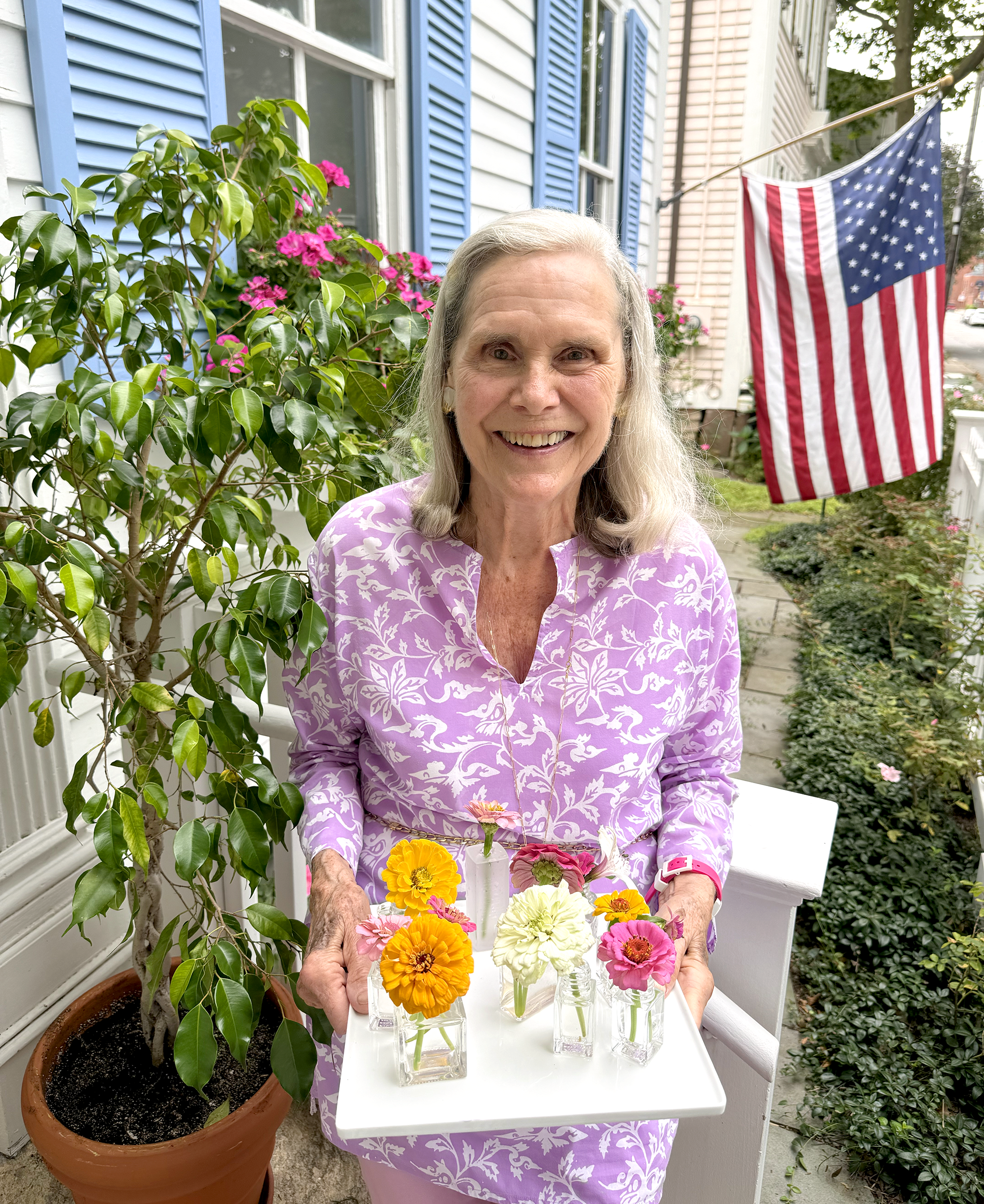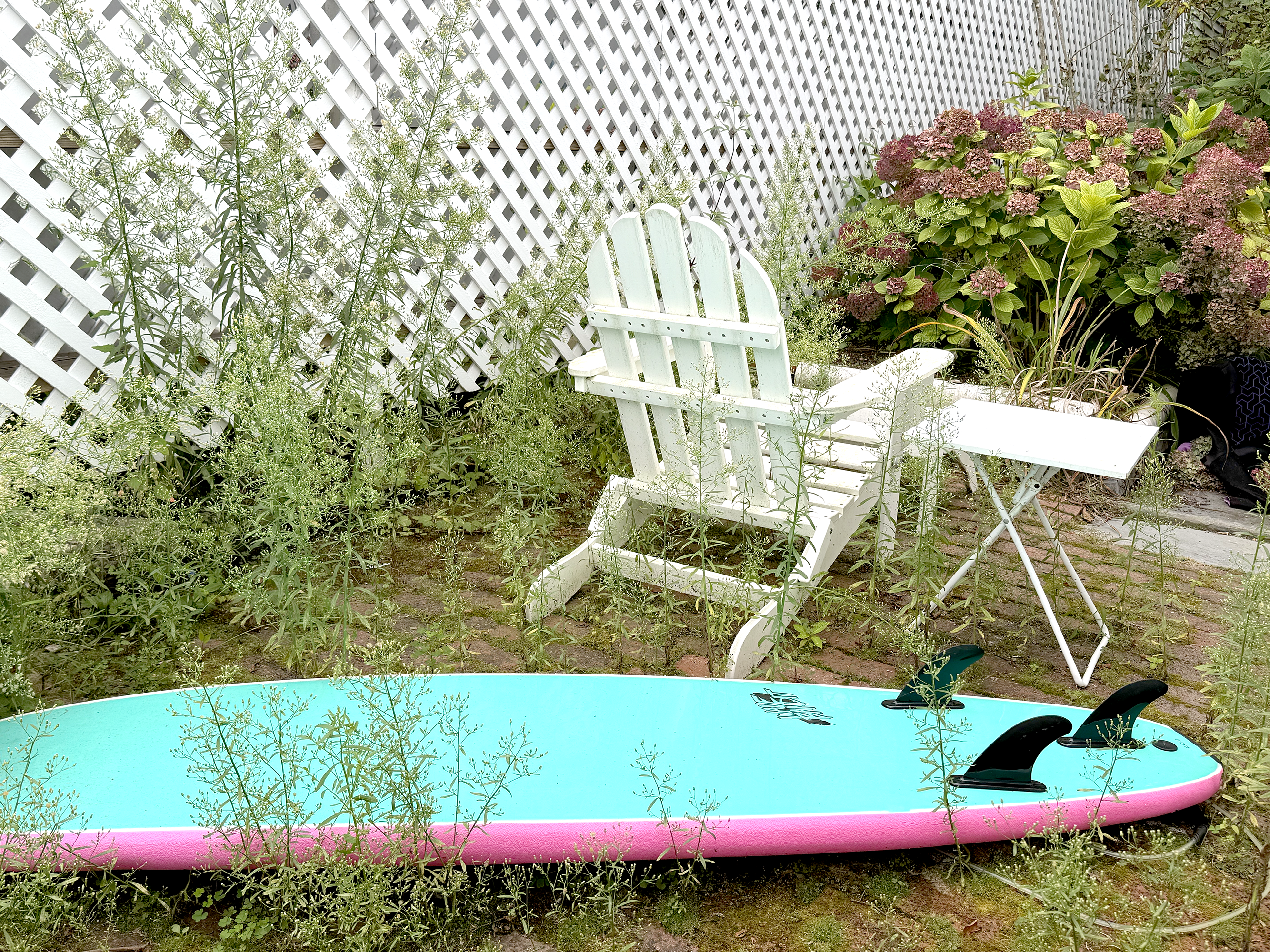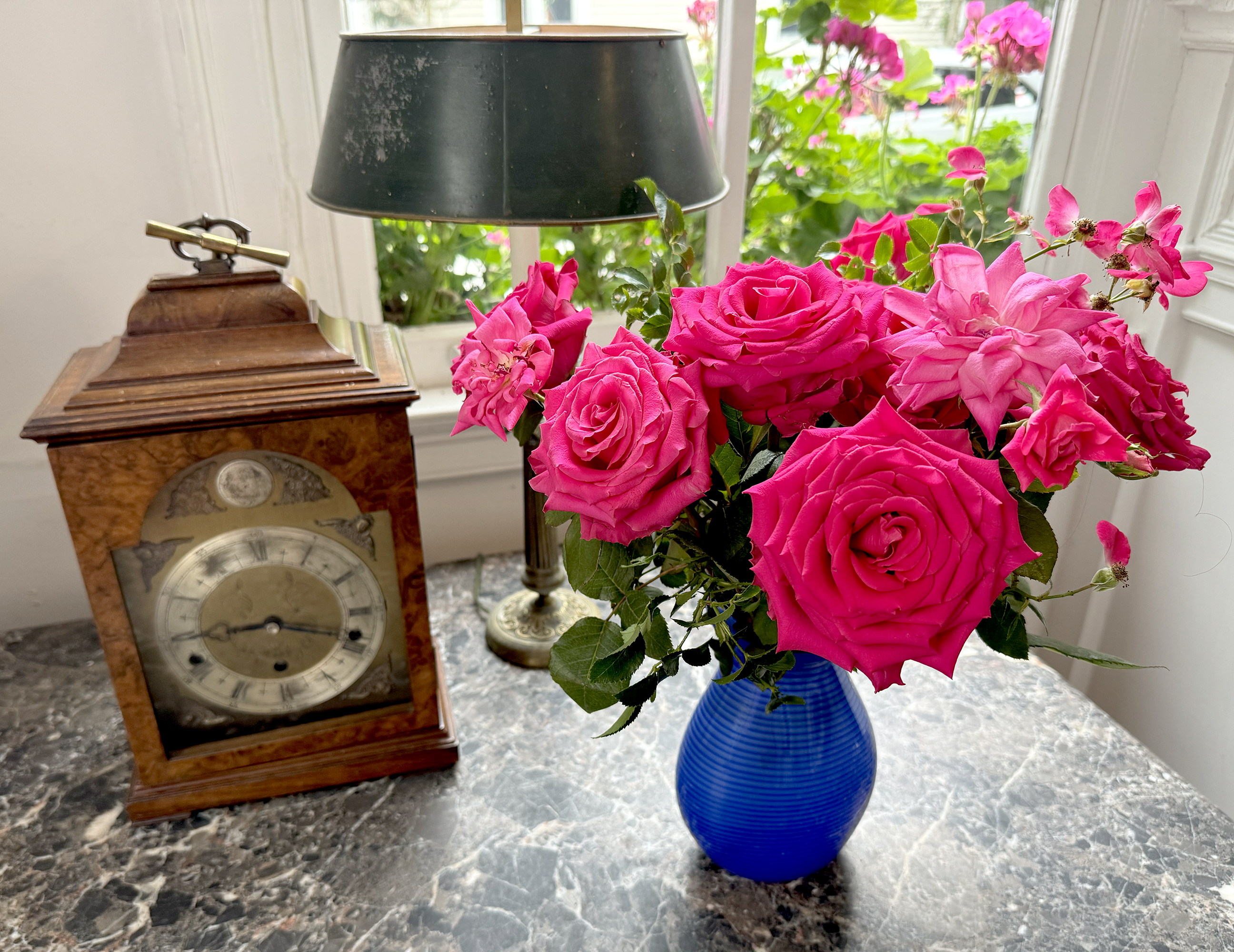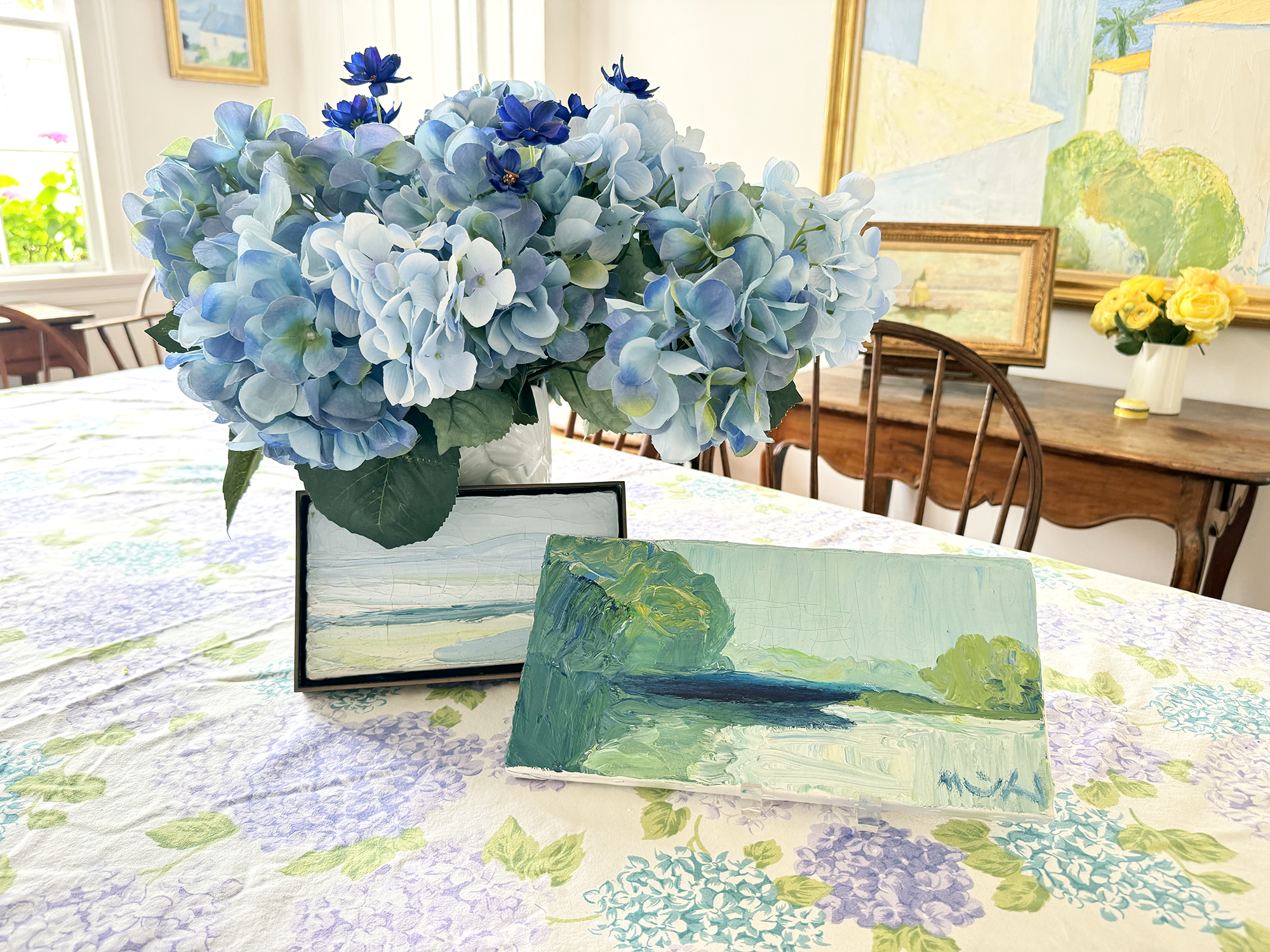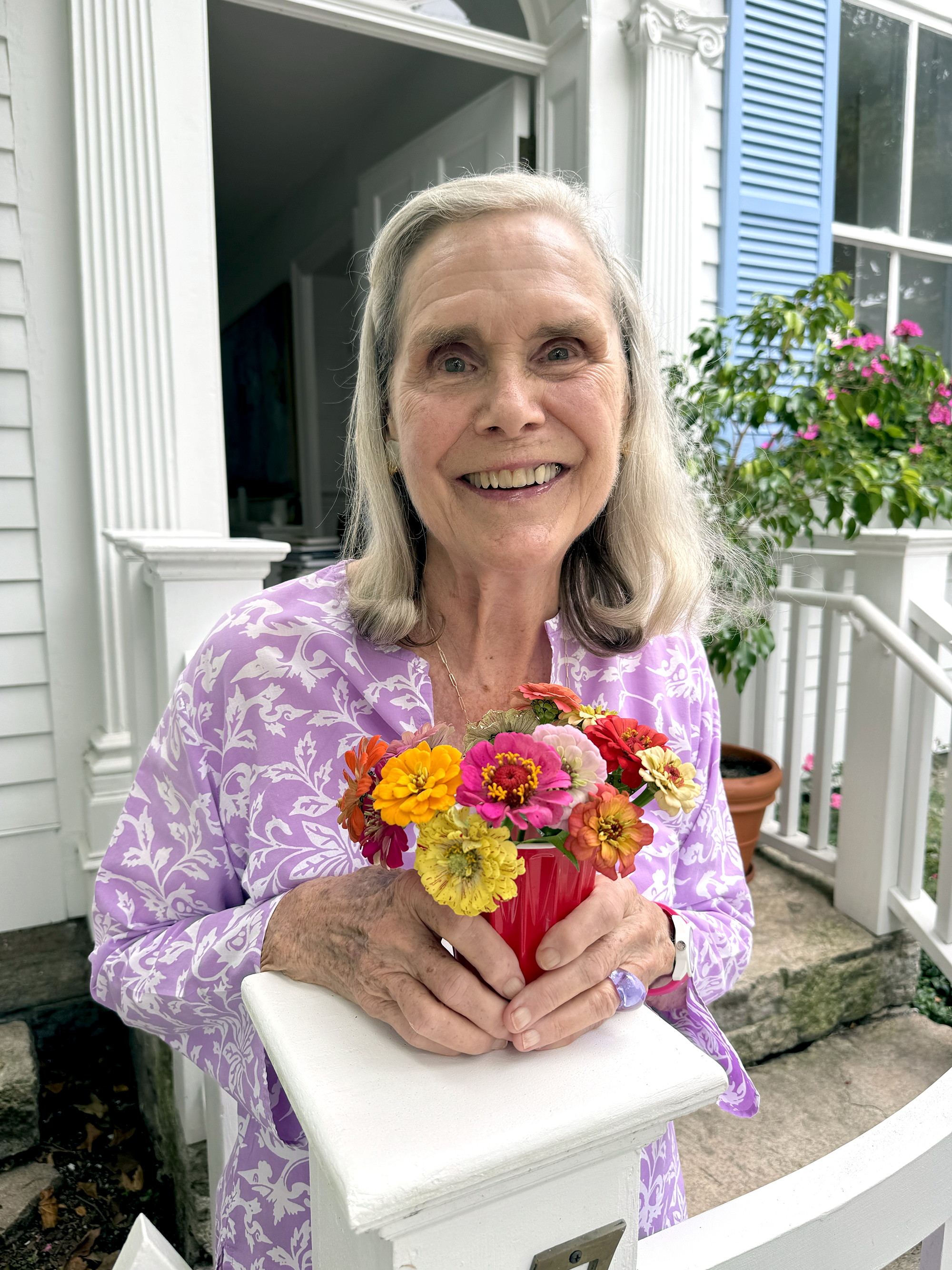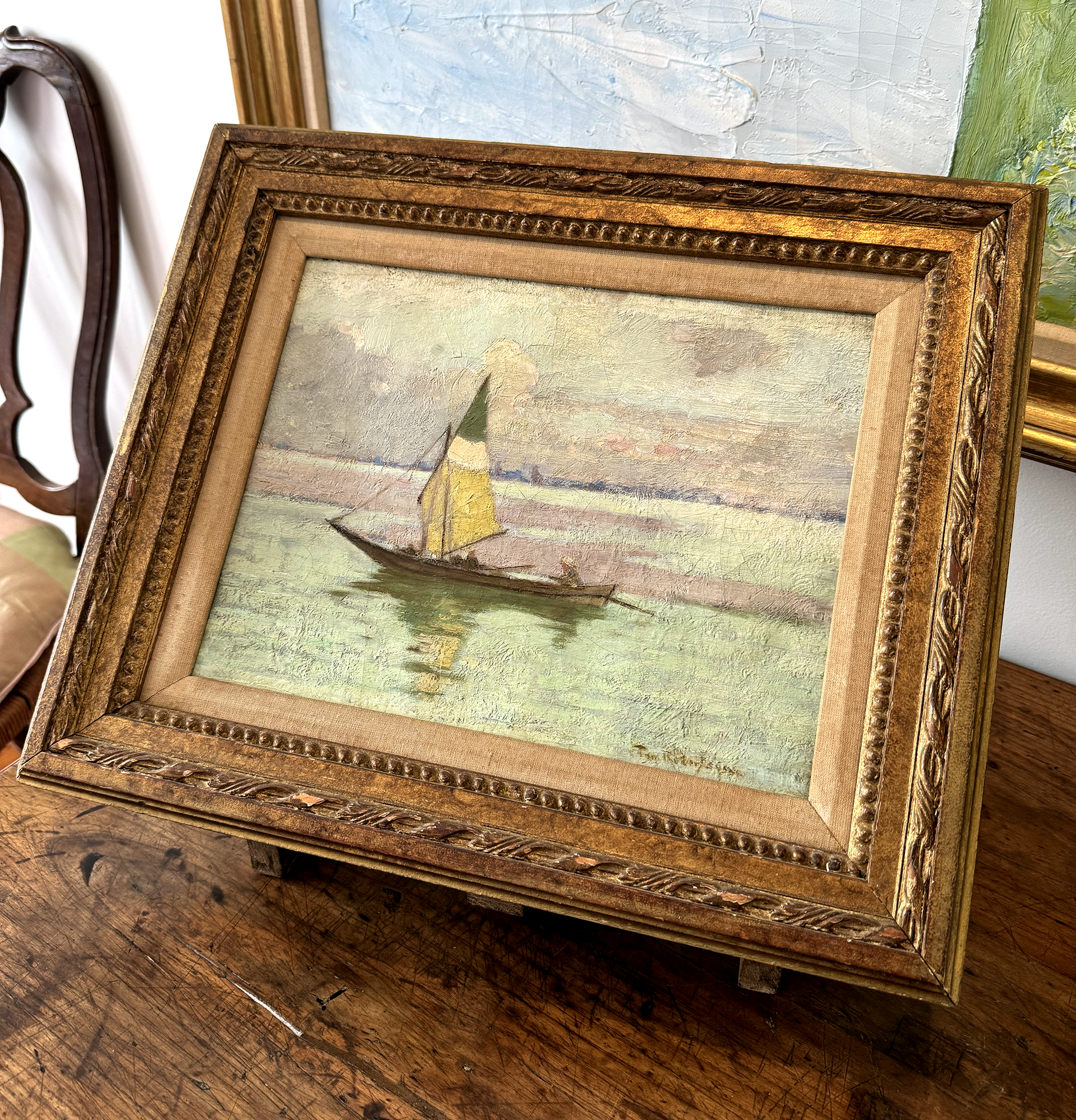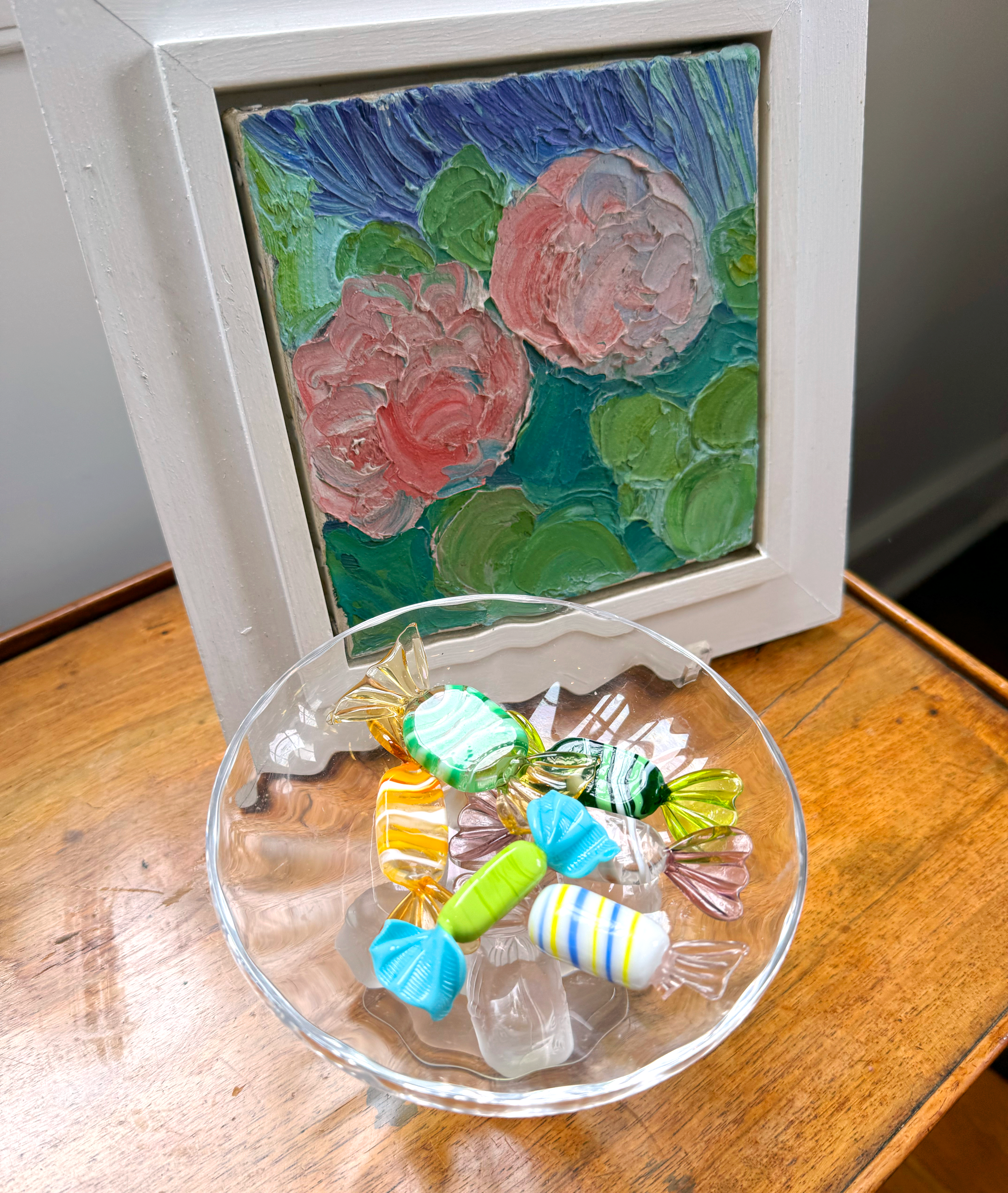AUTHOR | SPEAKER | PHILOSOPHER | DESIGNER
September 2024
“Ripeness is the condition for any organic transformation…inner readiness…faith in the process.” —Lewis Mumford
Dear Friends,
I love you! Happy September.
It is hard to imagine a time in my long life when I’ve felt as full of joy. A friend believes all of us have the power to light up the world. My spirits are as high as a kite. When I joined good friends recently to go to Enders Island to view the dahlias and smell the garden roses, each of us felt the bliss Joseph Campbell wants us to follow.
The late-summer sky was an intense, atmospheric blue with an endless depth and clouds so white and fluffy I felt suspended, floating between the soil and the sun. The Chinese philosopher Confucius taught us that “To look up is joy.” This sense of lightness of being was enhanced by the incomparable beauty of nature’s powerful, precious presence. There was a gentle, refreshing, salty sea air dancing around the bright, warm sun. My friends took notes as Gail, a volunteer gardener for 17 years, freely gave advice about all they need to know about growing dahlias.
September was in the air toward the end of August. The outing was perfectly planned to have the weather cooperate, with bright sunshine, warmth, low humidity and a refreshing, gentle breeze from the ocean. Seated on a stone bench next to rows of vividly colored, vibrantly designed dahlias, I gazed out at a lone boat’s white sail serenely situated in the dark blue water with the blue sky reaching down, as though to feel the cool wetness. Inhaling. Exhaling. Ah, all’s well with the world!
There is abundant beauty available to us. Whenever we make an effort to carve out time to expose ourselves to her magic powers, we feel this awesome sense of gratitude. As human beings, we, by birthright, are an integral part of this mysteriously wondrous planet, our rightful home. By seeking out these natural, seasonal, organically evolving gardens and peaceful landscapes, we enter into sanctuaries that fill our inner core with vital nourishment. By inhaling fresh air in our lungs and strolling gently among the awesome beauty of these colorful flowers and stately trees, I’m able to absorb this sacred experience within my soul.
All the extravagant, vibrantly colorful blossoms of spring and summer we can keep alive in our vast, expansive, invisible soul garden. This is one facet of the endless dimensions of the mysterious. The photographs we’ve taken, the flowers we’ve tenderly arranged, drawn and painted, pressed and dried are memories we can cherish. Having exposed ourselves to a wealth of enchanting gardens and trees, mountains, fields, streams, waterfalls, rivers, lakes, ponds and oceans expands our visualization of a steady stream of incomparable beauty. Goethe knew that “Beautiful is greater than Good, for it includes the Good.” Let’s all aspire to live a more beautiful life.
This invisible inner space is light-filled, expansive and gloriously serene. Spectacular joy and beauty are in the very air we breathe when we’re lovers of nature’s gifts. By cultivating our interior landscape with the same reverence as when we tend to our own garden, we create our private paradise. “A thing of beauty,” Keats famously wrote, “is a joy forever.” Beauty accumulates incrementally throughout all the seasons and chapters of our lives. “All high beauty,” Emerson reminds us, “has a moral element in it.”
“Everything on earth is beautiful, everything, except what we ourselves think and do when we forget the higher purposes of life and our own human dignity.”
—Anton Chekov
September’s Song
The joy I feel as I lean into September is powerful, full of optimistic, positive energy and inspiration. I have lived 82 wonderful Septembers. By far, this Labor Day month —September, the ninth month of the Gregorian calendar — is my favorite, most joyous month and time of year. I don’t need to be reminded of all the myriad reasons why I love this month so reverently. September is a joyful song to me of all of life’s richest possibilities.
“Try to remember the kind of September
When life was slow and oh, so mellow.
Try to remember the kind of September
When grass was green and grain was yellow.
Try to remember the kind of September
When you were a tender and callow fellow.
Try to remember, and if you remember
then follow, follow.”
Erich Fromm understood that “joy is an achievement; it presupposes an inner effort, that of productive activity.” September’s energy encourages us to get down to work, to be focused. To be serious. To be committed. The Bible’s psalms, sacred songs and hymns remind us that “Weeping may endure for a might, but joy cometh in the morning.” September is the morning! Emotionally, this begins a new year. Let’s get going. Rejoice in this transitional month of September.
Time to switch gears. Back to school, work and our studies. Let its wisdom transform us in these 30 precious, informative days of new beginnings and boundless opportunities. “The most visible joy,” wrote the German poet Rainer Maria Rilke, “can only reveal itself to us when we’ve transformed it, within.” September has the power to change us. To make us poets. We have elevated energy and excitement about what we can do.
Let’s begin. Now is the season we’re invited to transform ourselves internally. We are not alone in the newness, the intense emotions about what we’ll learn from our efforts, our hard work, our daily practice to transcend our former self.
My beloved life partner Peter wrote of the transcendent feelings of September: “Sublime — the soaring of the spirit into joy.” Ten years ago on September 25, on a sparkling sunny afternoon, Peter took his last breath. We shared 60 years of friendship, 40-plus years of marriage. Truly “sublime.”
I live by the truth that joy shared is doubled. Let all the joy in our heart light our path as we celebrate all the wisdom available to us when we seek her guidance. The late James Baldwin’s 100th birthday was in August, and he reminds us, “You have to walk straight into it.” We can encourage others on our mutual quest to live up to our highest potential by sharing our own discoveries and opportunities.
Let’s walk straight into September together. Whoever you are, wherever you are, we’re all in this transitional time of year with the same humanity. All of us are back to school. Some will buy new shoes and school supplies. Many will take books out from the library. We’ll buy books as our “textbooks” for our personal research library. We’re lifelong learners. Knowledge is our human capacity.
Socrates was a tough teacher. “There is only one good, that is knowledge; and only one evil, that is ignorance.” It is up to each of us to do the work. Our curiosity to learn and grow is innate in all of us, at all ages. When we can read, we can learn. The more we study, the happier and more fulfilled we become, and the closer we are to the gods. As Goethe taught us: We must always change, renew, rejuvenate ourselves; otherwise we harden.”
Human Emotional Communications
Recently there was a startling article in the New York Times by Jason Zinoman about the author Simon Rich. “As intelligence turns artificial,” Rich believes, “humor and creativity can still forge connections between people.” Rich believes artificial intelligence will outwrite any human in four years. Have we turned our backs on this threat? Are we too frightened to even imagine the implications to writers? Can something inhuman, antagonistic and unpredictable make human beings’ work obsolete?
Zinoman wrote that Rich saw “a technological comet hurtling toward us before.” Having looked at an early version of Facebook as a classmate of Mark Zuckerberg at Harvard, he realized this could be distracting, and he immediately rejected social media for good. Having an epiphany that he could be funny, make people laugh and cry, Rich made art focused on people’s connection to other people.
Rich worked for Pixar’s movie Inside Out. I’ve never been a fan of animation, a fact that has remained consistent throughout eight-plus decades. However, when my good friend Kerri urged me to keep an open mind and go see the new version of Inside Out 2, I did. A friend and I were moved by laughter and tears. “In a world of sophisticated robots, human emotional communication might be more critical to the purpose of art,” wrote Zinoman.
Writers write to connect, to communicate intimately on a soulful level. It is impossible to be able to make any deep emotional communication with an inanimate robot who only knows what information is stored. The feelings we get when we read the beautifully expressed words in a book by an authentic human being move us. We feel we know the character of the person who wrote the book we’re able to hold in our lap.
One of the great benefits of my being a published author was to go on book tours around America and meet my readers in the communities where they lived. What dazzled me when I met some readers (who had written to me) is that we warmly greeted each other as trusted friends. Real people, face to face, interconnected, with open minds and hearts. Artificial intelligence can’t create an authentic book tour’s event where the true, real writer meets and greets their trusting readers. None of us likes to be fooled.
If Rich’s belief is that AI will “outwrite” every human in four years is prophetic, it’s all the more reason to value humanity’s ability to reach one another soul to soul. I cherish my friends. We show up for each other, comfortable simply being together. A close trusted friend is a beautiful, calm presence in our soul, with no distance to separate our attachment.
As a dear friend told me in one of our spontaneous conversations, it is so beautiful when someone we love both makes us feel comfortable and also comforts us.
David Brooks wrote a column in the New York Times titled “Many People Fear A.I. They Shouldn’t.” He takes the view that AI-driven machines will not replace humans because our human minds are moral and resilient. Proud of humanity, he optimistically writes that we humans have the capacity to “love and bond with others” as well as seek meaning and purpose that will always make us uniquely valuable.
Simon Rich doesn’t think AI is a threat because the fun is “to connect with people.” I agree. We take great pleasure in sharing our humanity; strong relationships are what make us enjoy sustainable happiness. Rich loves being able to write in ways that make his readers laugh and cry. Laughter is the comedy in our deeply serious lives. The great leveler. Without laughter, life is without color. Without feelings, we are heartless machines. Everyone has to answer the question for themselves of whether AI is good for humanity.
Socrates, Plato and his student Aristotle had their computer in their brains. I often ask myself, What would Aristotle think? “I know nothing” were the words Socrates lived by. This brilliant thinker questioned us all. He urged us to think critically, for ourselves. We have to own our values and beliefs with our life. He died for truth. He humbly walked, talked and listened. “I am nearest to the gods in that I have the fewest wants.” Socrates, the Father of Philosophy, wrote nothing. Plato was his eager student who wrote what he learned from his teacher. Plato wrote about Socrates’ expressed principles “in her own proper jewels: temperance, and justice, and courage, and nobility, and truth.”
Good thinkers are not obsolete and never will be. While methods of communication have changed over these several thousand years, our ethical code of conduct is timeless and always relevant. Socrates lived by his principles. A testament to his character, he lived a good life and died a noble death.
“Philosopher President”
On the front page of the New York Times, a headline caught my attention: “Philosopher President, Near His End, on How to be Truly Free.” (Philosophy has always been a subject I’ve studied with growing influence over each passing year. Philosophy begins with wonder; a philosopher is a lover of wisdom, taking a calm and rational approach toward life.)
This global profile by Jack Nicas was about the “folksy president of Uruguay” (population 3.5 million), José Mujica — or Pepe, as he is universally known. He is responsible for the “transformation of his small South American nation into one of the world’s healthiest and most socially liberal democracies.”
It is Pepe’s plainspoken, down-to-earth philosophy about his ideas on how to build a happier life and a healthier, better society that fascinated me the most. He and his wife have lived in a three-room house on a small farm for decades, where they grow chrysanthemums! The path he has taken, to live humbly as president in order to "be truly free,” is the road less traveled. At 89, in declining health, he has a wealth of wisdom he shared in this interview with Nicas that we can take to heart this month.
Just because we can doesn’t mean we should. Pepe believes we complicated our lives uselessly and that we can live more peacefully. “You’re free when you escape the law of necessity — when you spend the time of your life on what you desire,” Pepe told Nicas.
“One always begins with the simple, then comes the complex, and by superior enlightenment one often reverts in the end to the simple. Such is the course of human intelligence.” —Voltaire
“Humanity needs to work less, have more free time and be more grounded,” said Pepe. “There is only one life and it ends. You have to give meaning to it. Fight for happiness, not just for wealth.” Because happiness is the air and purpose of life, everything else is a means to this end; Aristotle’s teachings ring true in Pepe’s philosophy and example.
Pepe’s speeches often have a positive message because “life is beautiful. With all its ups and downs, I love life. And I’m losing it because it’s my time to leave. What meaning can we give to life?” This can be the question we ask ourselves as we begin our exciting new adventure into the unknown: “What meaning can we give to life?”
When Nicas asked Pepe how he wants to be remembered, he said, “Ah, like what I am: a crazy old man.”
“That’s all?” Nicas replied. “You did a lot.”
“I have one thing. The magic of the word,” he replied. “The book is the greatest invention of man. It’s a shame that people read so little. They don’t have time.”
History illustrates to us that we are never given free time; we seize it and take it as ours to spend, not allowing “others” to rob us of our most valuable lessons on earth. Take time to become the person we choose to be.
Pepe doesn’t believe we make healthy use of our phones. “Children walk around with a university in their pocket. That’s wonderful. However, we have advanced more in technology than in values.” He doesn’t think the digital world can replace two people face to face, looking at each other, talking. “This is nontransferable. We’re not only speaking through words. We communicate with gestures, with our skin. Direct communication is irreplaceable. We are not so robotic. We learned to think, but first we are emotional beings.”
One of David Brooks’ recent columns in the New York Times was titled “You’re Only as Smart as Your Emotions.” Brooks believes in the power of emotional self-awareness. “Happiness makes people more creative, more flexible in their thinking.”
“We believe we decide with our heads,” Pepe told Nicas. “Many times the head finds the arguments to justify the decisions made by the gut. We’re not as aware as we seem.” My good friend Charlie thinks our brain is located in our gut!
My favorite thought of the philosopher president is this: “We must learn to speak with the person inside us.”
At the end of this interview, Pepe concluded, “We are interdependent…. Life is a chain and it is still full of mysteries.… We should be building windmills. Yet we spend on weapons.” As he said, humans are indeed complicated animals — “both smart and stupid.”
The conversation between these two thoughtful men emphasized the importance of living by our own values, listening to our voice within. Just because José Mujica became president didn’t mean he had to live in a palatial four-story mansion. “To have tea you have to walk three blocks,” he said. “Useless. They should make it a high school.” Pepe has no airs; his philosophy is common sense and a strong moral code. Knowing we “need” and “want” less, we’re free. We can leisurely take time to feel the pleasure of awe and wonder in nature’s mysteries.
“I admire nature,” he said. “I almost have a sort of pantheism. You have to have eyes to see it.”
The Deity of Nature’s Supreme Beauty
Emerson spoke about this concept of pantheism, defined by Merriam-Webster as a doctrine that equates the deity with the forces and laws of the universe, in an astonishing, revealing address delivered before the senior class at Harvard Divinity College, Cambridge, on July 15, 1938. He begins, “In this refulgent summer, it has been a luxury to draw the breath of life. The grass grows, the buds burst…. The mystery of nature was never displayed more happily.”
This speech is so powerful to me, because Emerson was addressing future ministers about how to revere the wonders of nature. He spoke about how absolutely, extraordinarily beautiful the universe is; how nature’s beauty is uplifting and full of light and joy and goodness. He taught that in our communications and in all the work we do, we must help uplift the human spirit. This speech was a turning point in theology, and in Emerson’s life. Below are a few passages that especially stood out to me.
“When the mind opens and reveals the laws which traverse the universe and make things what they are … overpowering beauty appears … when … heart and mind open to the sentiment of virtue … to the good, to the perfect….”
“Love the Right. Truth is beautiful within and without, forevermore.”
“Character is always known.”
“Good is positive.”
“All things proceed out of this same spirit … love, justice, temperance.”
“That is always best which gives me to myself.… Obey thyself.”
“It is a high benefit to enable me to do somewhat of myself.”
“It is the effect of conversation with the beauty of the soul … a desire and need to impart to others the same knowledge and love.”
“The spirit only can teach.… Through whom the soul speaks, alone can teach.”
“See the world to be the mirror of the soul.”
Seventy-five years ago, the 20th century American social critic Lewis Mumford wrote The Conduct of Life. In this important book, he decried dehumanizing technology and called for a return to humanitarian and moral values. “Growth and self-transformation cannot be delegated,” he wrote. Of all the wondrous gifts and miraculous blessings of nature, humankind’s capacity to love is the highest, most mysterious. Love is hardwired in the brain. I hope you and I will find great strength and enlightenment in this glorious month of new thoughts, new teachings, new hope.
“Hope is the thing with feathers
That perches in the soul,
And sings the tune without the words
And never stops at all.”
—Emily Dickinson
May September bring you great joy and hope.
Love & Live Happy,

“The courageous power of hope.” —Michelle Obama
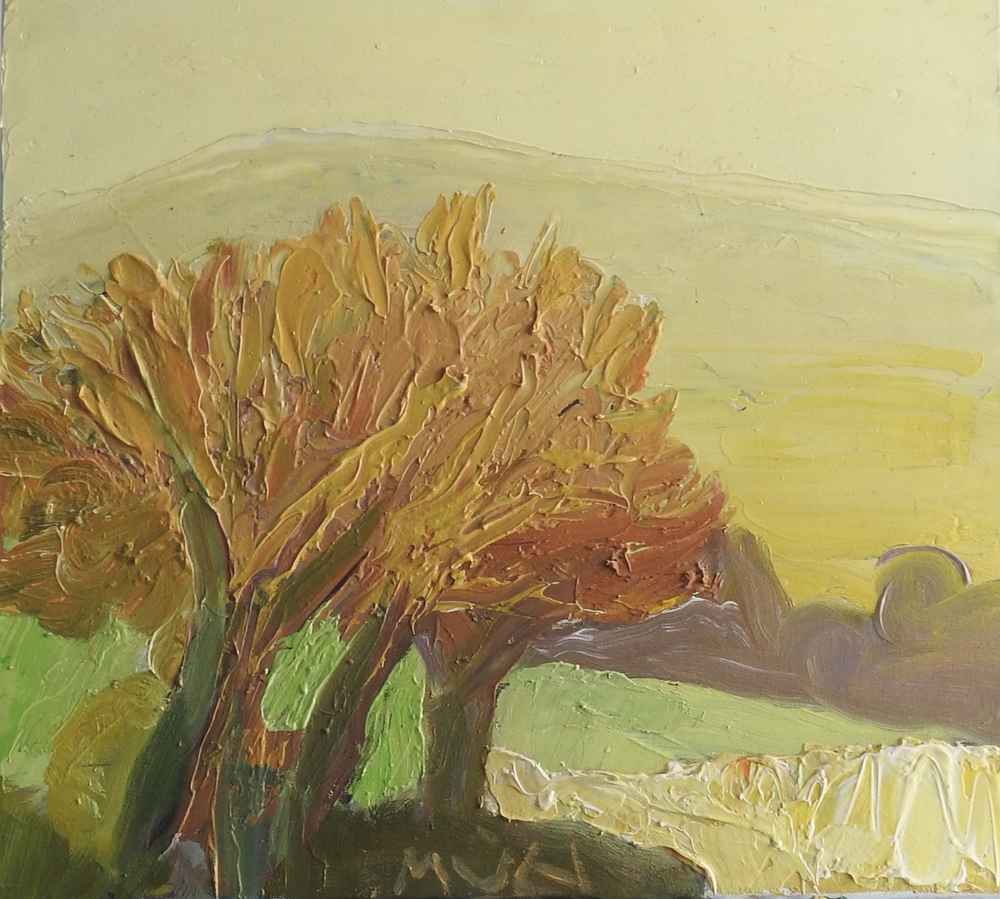
This month, I'm letting go of a lithograph by Roger Mühl if anyone is interested in adding it to their art collection. Please contact Pauline at Artioli Findlay (pf@artiolifindlay.com) for more information.
Roger Mühl (French, 1929 - 2008)
Automne
oil on canvas
12 x 12 3/4 inches
Painted ca. 2001
Mühl's French landscape of vibrant fall foliage is painted in rich impasto with natural tones.

